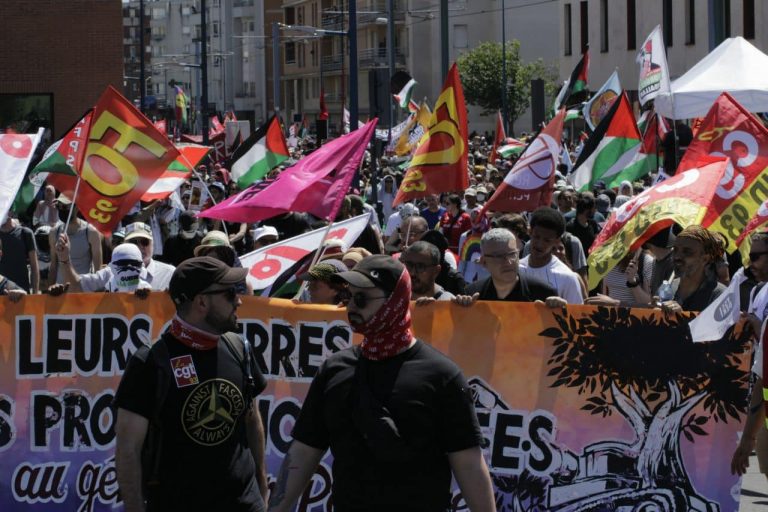Thousands Protest At Paris Air Show Over Israeli Participation
The roar of fighter jets echoed across the Parisian suburbs as demonstrators marched through the streets of Seine-Saint-Denis. On Saturday, June 21, several thousand protesters wound their way from Bobigny toward Le Bourget airport, demanding an end to what they called the “business of death” at one of the world’s largest arms exhibitions.
Marchers carried banners reading “Their wars, their profits, our deaths, stop the genocide in Palestine.” The crowd included Palestinian youth from across Europe alongside French trade unionists, pro-Palestinian activists, and left-wing groups.
The Paris Air Show, known in France as the Salon du Bourget, draws hundreds of thousands of visitors every two years to present the latest in aerospace technology.















